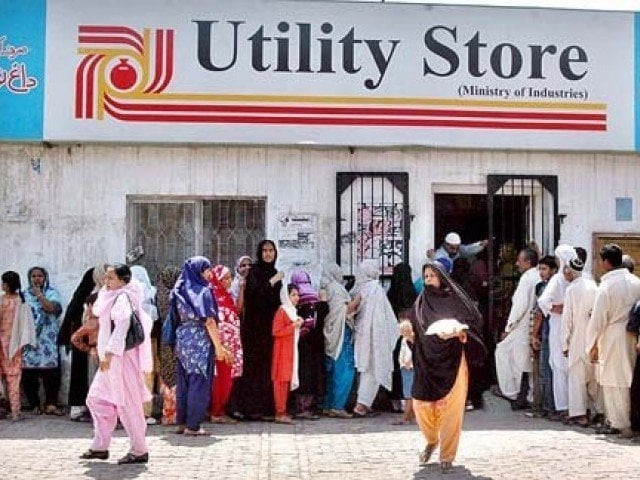Ministry proposes Rs1.73b Ramazan subsidy package
Utility stores will sell essential commodities at lower-than-market prices

Besides the traditional stores, USC will also provide essential commodities at concessionary rates during Ramazan through mobile outlets and stalls at all Friday and Sunday bazaars. PHOTO: FILE
The Ministry of Industries and Production has proposed the Rs1.7-billion Ramazan package, but it is lower than the subsidy of Rs2 billion set aside last year.
The Economic Coordination Committee (ECC) of the cabinet will now take up the package for approval.
Consumers suffer as misuse of govt subsidy goes unchecked
An official revealed that the 19 essential commodities on which the subsidy had been proposed included wheat flour, sugar, ghee, cooking oil, gram pulse, gram flour, rice and dates.
Apart from the special government subsidy for Ramazan, the Utility Stores Corporation (USC) would also sell 1,500 goods of daily use at 5-10% discount by reducing its margins in order to provide relief for marginalised sections of the society, he added.
The government may provide a subsidy of Rs4 per kg on flour sales totalling Rs200 million for Ramazan. The Ministry of Industries has estimated the supply of 50,000 tons of flour during the month.
Likewise, the price of ghee would be slashed by Rs15 per kg, cooking oil by Rs10 per litre, gram pulse and gram flour by Rs20 per kg each and dates by Rs30 per kg, the official said.
Overall, the government would offer a subsidy of Rs450 million on ghee, Rs200 million on cooking oil, Rs50 million on gram pulse and Rs22.50 million on dates.
The price of basmati rice will go down by Rs15 per kg, black tea by Rs50 per kg and milk by Rs15 per kg.
The subsidy rate will be Rs15 per kg on moong pulse (washed), Rs10 per kg on mash pulse (washed), Rs25 per kg on white gram, Rs15 per kg on Sella rice, Rs15 per kg on broken rice, Rs10 per 800ml bottle of squashes and syrups and 10% on spices.
Of the total subsidy, the Ministry of Industries is seeking allocation of Rs100 million for spending on awareness campaign on electronic and print media about the Ramazan relief package for 2018.
During the month, USC outlets in rural areas will stay open every day from 9am to 7pm and from 10am to 10pm in urban areas in order to facilitate the customers.
Ministry proposes Rs9b package for cash-strapped utility stores
Besides the traditional stores, USC will also provide essential commodities at concessionary rates during Ramazan through mobile outlets and stalls at all Friday and Sunday bazaars.
The official emphasised that a proper check and balance mechanism had been established in an attempt to provide commodities of daily use for the consumers in a transparent manner.
Inspection teams would be constituted for different zones to take swift action on consumer complaints while vigilance and audit teams will also be deployed at zonal offices to examine stock position at USC warehouses every day and report to the head office.
Published in The Express Tribune, April 6th, 2018.
Like Business on Facebook, follow @TribuneBiz on Twitter to stay informed and join in the conversation.


















COMMENTS
Comments are moderated and generally will be posted if they are on-topic and not abusive.
For more information, please see our Comments FAQ